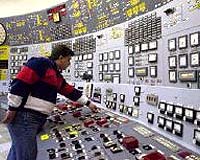 |
New Orleans, Louisiana (AFP) June 13, 2010 US and British leaders sought to ease tension in a phone call amid sharpened rhetoric over the Gulf of Mexico oil spill, as President Barack Obama prepares for a fourth trip to the stricken region. Obama will travel Monday to Mississippi, Alabama and Florida to tour the disaster zone as domestic political pressure mounts over his handling of the worst environmental disaster in US history. Meanwhile BP is racing to meet a 48-hour deadline imposed by the US Coast Guard on Saturday to deliver a better plan to contain oil from a stricken well that is gushing more oil than once feared. Obama -- who said last week he wants to know "whose ass to kick" over the catastrophe and fired a warning over shareholder payouts -- has summoned BP Chairman Carl-Henric Svanberg to a meeting at the White House Wednesday. The rhetoric led to fears that the president was stoking an anti-British backlash, but in a 30-minute phone call Saturday, Obama assured Prime Minister David Cameron that "frustrations about the oil spill had nothing to do with national identity," a spokeswoman for the prime minister's Downing Street office said. "The president made clear that he had no interest in undermining BP's value," the Downing Street spokeswoman said, adding that Cameron "stressed the economic importance of BP to the UK, US and other countries." The White House said the two leaders "discussed the impact of the tragic oil spill in the Gulf of Mexico, reiterating that BP must do all it can to respond effectively to the situation." In London, BP said in a statement that it appreciated the "leadership and constructive engagement of the US and UK governments." Meanwhile the US Coast Guard ordered BP to improve its plans to contain the spill within 48 hours given new US government data this week that suggested the flow was as much as double previous estimates. "Because those estimates have now been revised and estimate a substantially higher flow of oil from the Macado 252 well, it is clear that additional capacity is urgently needed," it said in a letter dated June 11 and released Saturday. US government data on Thursday suggested the flow of the leak -- before a the pipe was cut open to put a containment system in place last week -- could be upwards of 40,000 barrels a day. The containment system is only capturing around 28,000 barrels a day, and the company's operation to boost that rate to between 40,000 to 50,000 barrels is not currently scheduled to be ready until July. There will be no permanent solution until the first of two relief wells is completed, in August at the earliest, allowing the leak to be plugged with cement. "I am concerned that your current plans do not provide for maximum mobilization of resources to provide the needed collection capacity consistent with revised flow estimates," US Coast Guard Rear Admiral James Watson told BP in the letter. "I am also concerned that your plan does not go far enough to mobilize redundant resources in the event of an equipment failure with one of the vessels or some other unforeseen problem," he added. The Gulf spill has affected the shorelines of Louisiana, Mississippi, Alabama and the Florida panhandle. US news media reported that a steel box the size of a large refrigerator leaking oil and with BP markings washed up Saturday on a beach at Panama City, Florida. Local officials said they would investigate if the steel box came from the Deepwater Horizon, the BP-operated drilling rig that sank on April 22 after an explosion that killed 11 workers. The accident triggered the oil spill. BP meanwhile has indicated it may finally bow to US pressure and suspend its dividend payment due July 27. Suspending the dividend is "an option that's up for discussion" at a Monday board meeting, a BP spokesman told AFP. Britain's Times newspaper said BP was preparing to place the second-quarter dividend money -- an expected 1.7 billion dollars -- in an escrow account in an attempt to ease political pressure on the firm. Analysts estimate that BP's total liability for the environmental catastrophe, including the cleanup, compensation claims, government penalties, and a host of civil lawsuits, could reach 30 to 100 billion dollars. The firm's share price has fallen more than 40 percent since the BP-leased Deepwater Horizon rig exploded on April 20, prompting speculation about bankruptcy and a takeover bid. As the massive cleanup continues and those who have lost their livelihoods struggle to get compensation, many here question whether BP - which earned 16.7 billion dollars last year - has deep enough pockets.
Share This Article With Planet Earth
Related Links Powering The World in the 21st Century at Energy-Daily.com
 Bulgarian PM opposes Russia energy projects
Bulgarian PM opposes Russia energy projectsSofia (AFP) June 11, 2010 Bulgarian Prime Minister Boyko Borisov spoke out Friday against a Russian oil pipeline and a Russian-backed nuclear power plant agreed by the previous government. Borisov, who has repeatedly expressed reservations about the projects, stopped short of saying the Burgas-Alexandroupolis oil pipeline and the Belene nuclear power plant would be scrapped. "I don't see it necessary to even disc ... read more |
|
| The content herein, unless otherwise known to be public domain, are Copyright 1995-2010 - SpaceDaily. AFP and UPI Wire Stories are copyright Agence France-Presse and United Press International. ESA Portal Reports are copyright European Space Agency. All NASA sourced material is public domain. Additional copyrights may apply in whole or part to other bona fide parties. Advertising does not imply endorsement,agreement or approval of any opinions, statements or information provided by SpaceDaily on any Web page published or hosted by SpaceDaily. Privacy Statement |